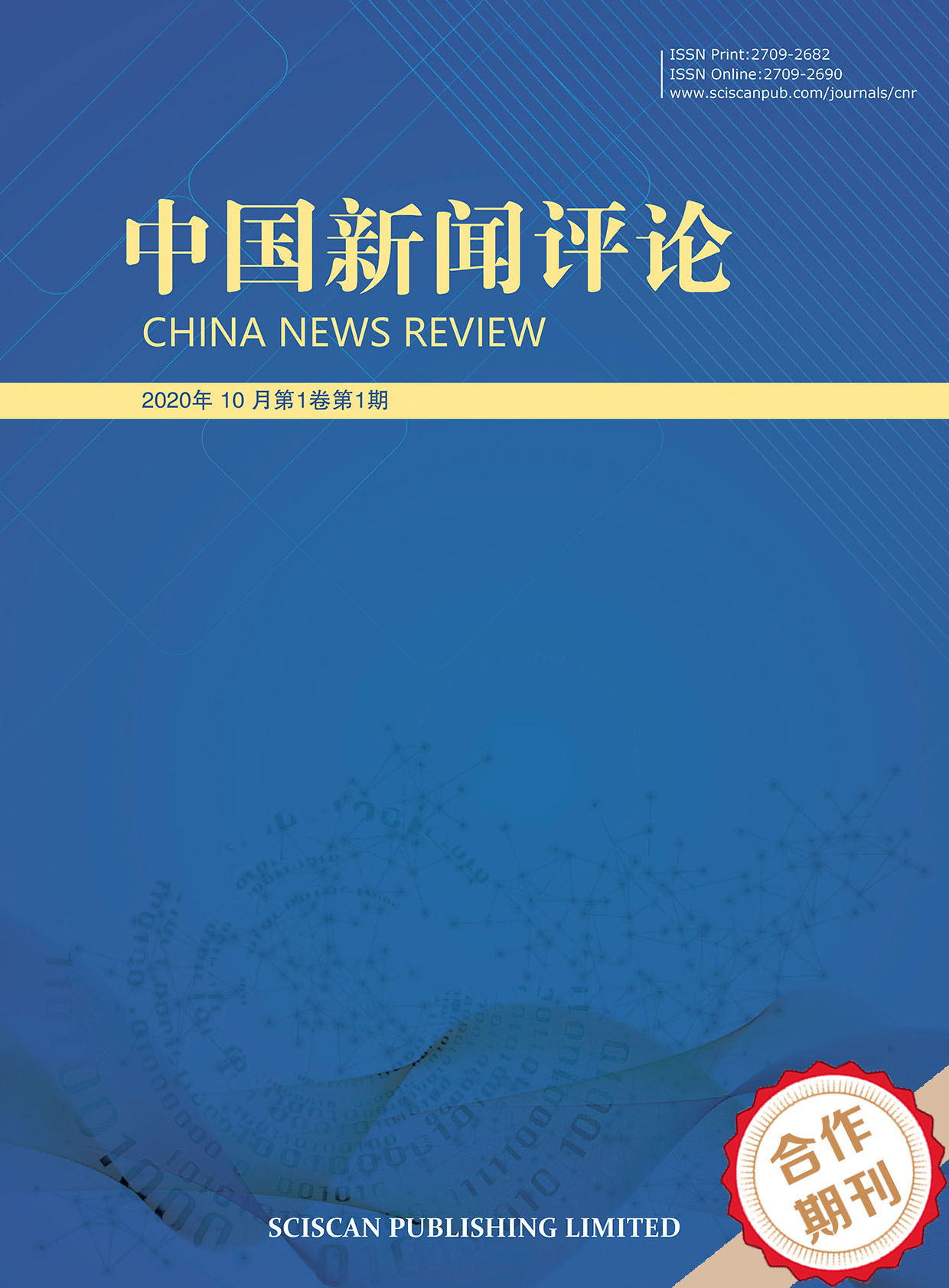China News Review
ISSN Print: 2709-2682
ISSN Online: 2709-2690
Contact Editorial Office
Subscribe to the latest published information from SCISCAN
“寻根”:人类学纪录片 发展创新路径探索——以《一直游到海水变蓝》为例
Searching for Roots: An Exploration of the Development and Innovation Path of Anthropological Documentaries —A Case Study of “Swim Until the Sea Turns Blue”
- Authors: 谭海燕 祝格
-
Information:
-
-
Keywords:
Documentary; Anthropology; Interpersonal temperature; Local care纪录片; 人类学; 人际温度; 乡土关怀
- Abstract: As the latest work of Jia Zhangke, the sixth generation of Chinese with unique rural style, the film Swim Until the Sea Turns Blue has swept the online and offline review field. This paper focuses on the narrative logic of the film and how the aesthetic interpretation expresses the embedded film and television anthropological thinking. The interpersonal care contained in his films and the oral expression of the journey of “searching for roots” in the countryside are both very useful innovations for the development of Chinese anthropological films. At the same time, for the current film and television anthropology film and documentary development is not clear in the industry, the author put forward its relevant analysis and suggestions to the dilemma of “good but not good”. 电影《一直游到海水变蓝》作为中国第六代独树一帜乡土风格的导演贾樟柯的最新力作席卷了线上、线下的评论视野,本文着力于探讨其影片的叙事逻辑,美学阐释是如何表达内嵌的影视人类学思考,其影片中蕴藏人际关怀与对乡土“寻根”之旅的口述式表达对于中国人类学电影的发展都是极为有借鉴意义的创新之举。同时,对于当前影视人类学电影纪录片发展尚不明朗的业态下,笔者对此“叫好不叫座”的困境提出其相关的分析与建议。
- DOI: https://doi.org/10.35534/cnr.0304011
-
Cite:
谭海燕,祝格.“寻根”:人类学纪录片发展创新路径探索——以《一直游到海水变蓝》为例[J].中国新闻评论,2022,3(4):98-104.
















